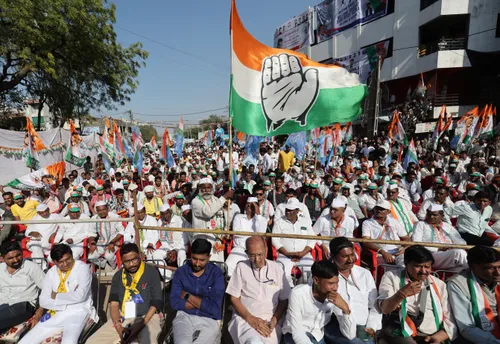Congress Calls for Extension of Indexation Benefits to Savings Schemes and Fixed Deposits
Introduction
In recent discussions surrounding financial policy and taxation, the Indian National Congress has put forward a significant proposal aimed at benefiting individual savers and investors. The party has called for an extension of indexation benefits to savings schemes and fixed deposits, which could have a substantial impact on tax liabilities and savings behavior across the country.
Table of Contents
What is Indexation?
Indexation is a method used to adjust income, expenses, or assets for inflation. In the context of taxation, indexation benefits are primarily applied to long-term capital gains. This adjustment helps in reducing the tax burden by accounting for the erosion of purchasing power due to inflation over time. Typically, indexation benefits are applied to investments in equities, mutual funds, and real estate.
For example, if an investor bought a stock for ₹1,00,000 and sold it later for ₹1,50,000, the profit of ₹50,000 would usually be taxed as a capital gain. However, with indexation, the original purchase price is adjusted for inflation, thus reducing the taxable gain.
Current Taxation Scenario
Currently, in India, indexation benefits are predominantly available for investments in long-term assets like stocks, mutual funds, and real estate. Fixed deposits (FDs) and savings schemes, such as Public Provident Fund (PPF) and National Savings Certificates (NSC), do not receive similar benefits, despite being popular savings vehicles among individuals.
Fixed deposits and savings schemes are taxed under the income tax bracket based on the individual’s income level. Interest earned from these instruments is added to the taxpayer’s income and taxed accordingly. This can lead to a higher tax burden, especially for those in the higher income tax brackets.
Congress’s Proposal
The Congress party’s proposal seeks to extend indexation benefits to savings schemes and fixed deposits. According to their plan, the interest earned from these instruments would be adjusted for inflation, thereby reducing the overall tax burden on the returns.
Key Points of the Proposal:
- Equity and Fairness: The Congress party argues that extending indexation benefits to savings schemes and fixed deposits would create a more equitable tax environment, aligning the treatment of these instruments with other long-term investments.
- Encouragement of Savings: By reducing the tax burden, the proposal aims to encourage more individuals to invest in savings schemes and fixed deposits, which are generally considered safer and more stable compared to equity investments.
- Impact on Taxation: The introduction of indexation benefits would result in a decrease in taxable income from these sources. This could have implications for government revenue but is seen as a positive step for individual taxpayers.
- Inflation Adjustment: With inflation consistently affecting the real returns on fixed deposits and savings schemes, indexation could help in preserving the actual value of returns, thus benefiting savers in the long run.
Economic and Political Implications
Economic Implications:
- Increased Savings: The proposal could lead to an increase in investments in fixed deposits and savings schemes, boosting the overall savings rate in the economy. This could have a positive impact on national savings and investment rates.
- Government Revenue: Extending indexation benefits could lead to a reduction in tax revenue from interest income. The government would need to evaluate the long-term economic effects and potential adjustments to maintain fiscal balance.
- Inflation Impact: Indexation benefits would help in mitigating the effects of inflation on fixed-income investments, thereby providing a more stable return for savers.
Political Implications:
- Public Support: The proposal is likely to gain support from individuals who have investments in fixed deposits and savings schemes, as it directly affects their tax liabilities.
- Opposition Response: While the Congress party supports the proposal, the ruling party and other political entities might have differing views. The debate could shape future financial and tax policy discussions.
- Policy Debate: The proposal will likely spark discussions on the broader implications of tax policy, including the balance between encouraging savings and maintaining government revenue.
Stakeholder Reactions
Financial Experts: Many financial experts and advisors support the idea of extending indexation benefits, arguing that it would make fixed deposits and savings schemes more attractive investment options. They also suggest that it would provide a fairer tax treatment for various types of savings.
Government Officials: Government officials might express concerns about the potential impact on tax revenue and the need for careful consideration of the proposal’s implications on the broader economy.
Public Opinion: Savers and investors are expected to welcome the proposal, particularly those who rely on fixed deposits and savings schemes for their financial planning. The extended benefits could provide a significant relief from the current tax burden.
Conclusion
The Congress party’s call for extending indexation benefits to savings schemes and fixed deposits represents a notable shift in financial policy discussions. The proposal aims to address the imbalance in the treatment of different investment instruments and provide relief to individual savers.
As the proposal moves through political and legislative channels, it will be essential to consider its broader economic and fiscal impacts. If implemented, it could reshape the landscape of personal finance and taxation in India, potentially encouraging more people to invest in safer, fixed-income instruments while addressing the challenges posed by inflation.








